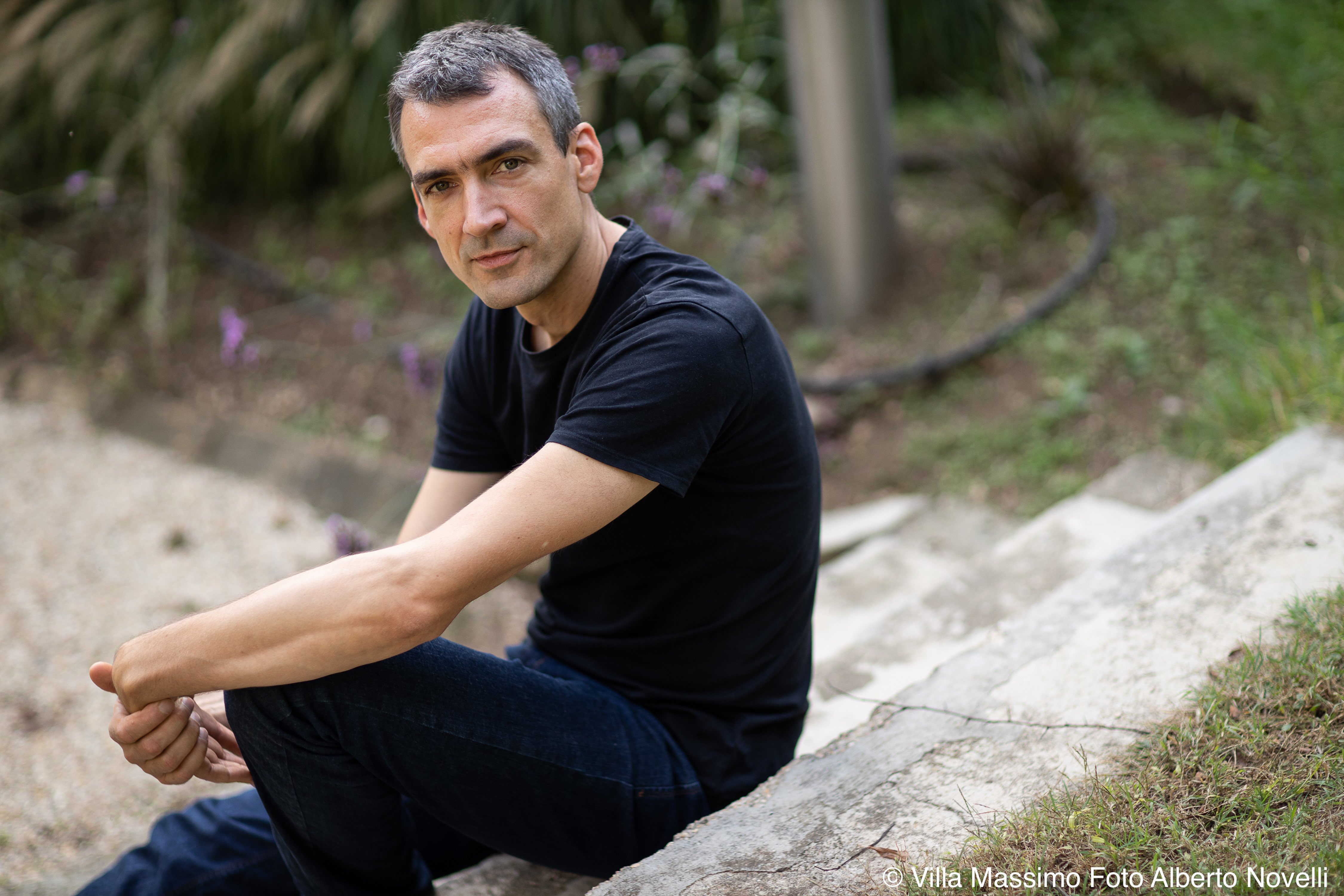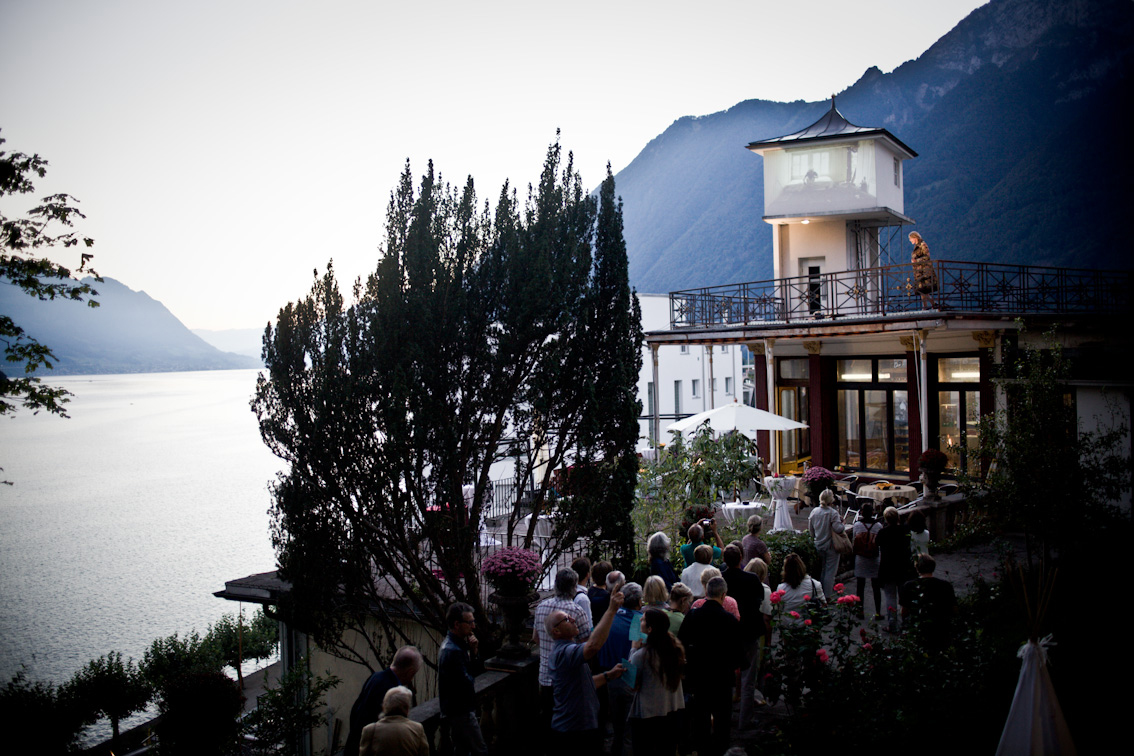Gabrielle Weber: Interview with Stefan Keller: Livestream – UA & Performace @ Othmar Schoeck Festival 11-13.9.20
The second Othmar Schoeck Festival is taking place in Brunnen in Central Switzerland from 11 to 13 September. The enchanted, weather-worn villa of the Schoeck family, situated high above Lake Lucerne, is once again the unique venue at the heart of this Festival.
In 2017, the composer Stefan Keller was granted a residency of several weeks at the Schoeck villa, which was linked with a commission to compose a song.
He is also the composer-in-residence at this year’s Festival, where three new songs of his will be given their first performances.
LIVESTREAM: Concert World premières Stefan Keller / Keller & Schoeck

Alvaro Schoeck, the founder and joint artistic director of the Festival, was convinced for a long time that the Festival would go ahead live this year, in the family’s “outlandishly designed artist’s villa”. But it’s since become clear that this unusual venue wasn’t built with the exigencies of a pandemic in mind. So while the Festival programme will still take place in the historic atelier of the painter Alfred Schoeck – the father of the composer Othmar – it will now be streamed live.
The “hit” of the first Schoeck Festival back in 2016 was the music-theatre event “Hauen und Stechen”. It took place in assorted rooms of the old villa, and wove the composer’s biography together with contemporary circumstances. Every performance of it was sold out.
The parallel performance at this second edition of the Festival will be HeimatLos (“HomeLess”). Women are its focus. It is about “Heimat” – “home” – as a place, as a concept, and as a feeling. HeimatLos will lead small audience groups through the villa, accompanied by music – and the livestream will follow them, putting the virtual audience at the heart of everything, winding its way through the intimate spaces of the house.
Saturday 12 September brings the world premières of the new songs by Stefan Keller.
Keller has often engaged with music traditions from other cultures, and studied the tabla for a long time in India. At the 2020 Eclat Festival, for example, he gave a virtuosic performance in a piece of his own for tabla, voice and live electronics.
Stefan Keller: Persona, Excerpts, 2019
For the Schoeck Festival, Keller has for the first-ever time turned to the more traditional combination of voice and piano. He is currently resident in Berlin, and he spoke with me from that city by Zoom about the background of his new pieces.
Stefan Keller, what were the origins of your three songs – how and where did you start to compose them?
I was in Rome from September 2019 to July 2020, thanks to a scholarship that enabled me to live in the Villa Massimo. I spent the highpoint of the first wave of the pandemic in the Villa, “locked down” with other scholarship-holders. This lockdown was much stricter in Italy than was the case elsewhere. We were in what was in fact a kind of golden cage – it was actually described thus by people on the outside – for it is a beautiful villa in a wonderful park. That had an impact on what I composed, just as everything that moves us influences what we write – even though it’s hardly possible to say exactly what it is. These intense experiences perhaps led me to attempt things that might beforehand have seemed impossible. During this extraordinary time, I started to work on the other two songs of my set of three.
What is your relationship to the work of Othmar Schoeck?
Before my residency, I didn’t have any intense connection to him. That changed when I stayed in the Schoeck villa. Schoeck’s published scores lay around me and literally “touched” me. I was also surprised by some of the stylistic things I found in him. But there are hardly any direct references to his music in my new songs. The reference point for me is the “lied” as a traditional genre that was crucial to Schoeck’s oeuvre.
The ambiance of the villa also inspired me while composing – I was able to work in a wonderful old hall with an excellent grand piano.

You have already often written works for voice, but not for the traditional combination of voice and piano. What does the genre of the lied mean to you, and how did you deal with it – also with the tradition in itself?
Composing for voice and piano was a challenge for me. The piano is in many respects an inflexible instrument with regard to sound, touch and pitch. Up to now, I have tended to employ it virtuosically and loudly, which is difficult to bring in line with my interest in the human voice.
Stefan Keller: Breathe / soyuz21, für Klavier, Akkordeon, elektrische Gitarre, Elektronik, 2016
For the voice, I imagined something rather fragile that depended on nuances of pitch and sound. So I took the approach of writing a reduced piano part, in order to give the voice enough space.
The texts of your songs are based on anagrams by the poetess Unica Zürn*: how did you deal with them?
In Zürn’s anagram poems, every line has the same letters in a different order. This combinatoriality of “alphabet sounds” gives the poems themselves a near-musical level. I wanted to make this level explicit in my music by decoding these words into their individual sounds. You don’t primarily hear the sounds themselves, but the whole words and their meanings.
In two of these three songs, the singer doesn’t sing the words conventionally or “naturally”. She provides the pianist with individual, voiceless consonants, and he articulates them with his voice. The goal, of course, is that the words are thereafter comprehensible. This makes big demands on both the singer and the pianist in matters of rhythmic and dynamic precision.
Interview: Gabrielle Weber
*Unica Zürn (Berlin 1916 – 1970 Paris), A German/French poet and artist, known for her 123 anagram poems.
The song cycle by Stefan Keller uses the following three anagram poems:
Der einsame Tisch (“The lonely table”), Es war einmal ein kleines (“There once was a little”), and Das Leben ist schoen (“Life is beautiful”).
Stefan Keller, Unica Zürn, Chris Walton
Othmar Schoeck Festival, artistic directors: Alvaro Schoeck / Chris Walton:
–HeimatLos, 11.9.: 8:30pm / 13.9.: 6pm
-At the concert at 8 p.m. on 12.9., further works by Stefan Keller will be performed, alongside selected songs by Othmar Schoeck.
World première, Keller: Soprano: Truike van der Poel, piano: J. Marc Reichow
On Saturday/Sunday, 12./13.9., the two-day international symposium Frauen:Stimmen (“Womens:Voices”) will take place live, and will be streamed live too (via the homepage of the Othmar Schoeck Festival / in collaboration with the Musicological Institute of the University of Zurich and Mariann Steegmann Foundation).
Artistic director of the symposium: Dr. Merle Fahrholz, Chefdramaturgin / stellvertretende Intendantin Oper Dortmund
Neo-Profiles: Stefan Keller, Othmar Schoeck Festival, Soyuz21

